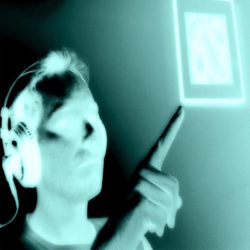I know what you’re thinking, that like, everyday is a challenge and like, we need to seize it and all, and so like, the Seven Challenges are like, the days of the week that we need to, you know, seize and stuff.
Come on now, that’s crazy talk, especially considering that “you,” i.e. the reader of this blog, is likely no one else but “me,” the writer of this blog and, of course, “I” know damned well what I mean by the Seven Challenges.
Two long days of psychological training can make one a little loopy. So, the Seven Challenges is a conceptual framework, like the Twelve Steps of Alcoholics Anonymous, that has been “empirically demonstrated” to be effective in treating teenagers for substance abuse and substance dependence. As a model and a tool to use in working with my patients, I was impressed with the Seven Challenges approach. It takes into account the developmental capacities of teens and places a great emphasis on “meeting teens where they’re at.” So, in essence, the focus is not trying to get kids to quit drugs, it is rather to help kids think deeply about their lives and to encourage them to make thoughtful, informed, and committed decisions about their lives. And I’m down with that, yo. But, of course, there’s more to the story. Yes, we must always brace ourselves for the dreaded politics.
You see, the State Department of Corrections (our biggest referral source) is not only using the Seven Challenges approach in their Drug Court program, they also have started referring more kids to our competitors because those facilities have recently been “Seven Challenge certified.” So, after two grueling days of training, our facility is now certifiable. But here’s the thing. The folks who run the SC licensing racket are marketing themselves as an “empirically validated” approach, and in order to “preserve the fidelity” of the program they insist, per the licensing agreement, that the Seven Challenges program not be used in conjunction with other treatment philosophies, such as Alcoholics Anonymous and Narcotics Anonymous.
This is when I get crazy, because I’m an educator and a therapist, not a fucking businessman. I have no problem integrating the essence of the Twelve Step approach within the framework of the Seven Challenges program. In fact, I feel that I have a responsibility to do so, because many of my patients are sent home to rural counties where Twelve Step meetings will be their only support system option. But now I have to worry about breaking some licensing agreement that has nothing to do with therapy and everything to do with people making money.
I hate dogma and I hate when capitalism corrupts science. But there you have it. I’ve always been the sort who takes what’s useful and what makes sense to me and then flushes the rest. So, when I work with kids I don’t make claims about what is true or not true about drugs, drug use, or life. I give them information, perspectives, and the arguments and evidence used to support various claims, then I help them to think everything through and to take an honest look at themselves and their lives. My challenge now is to find the best way to continue to do this within the existing political constrains.

